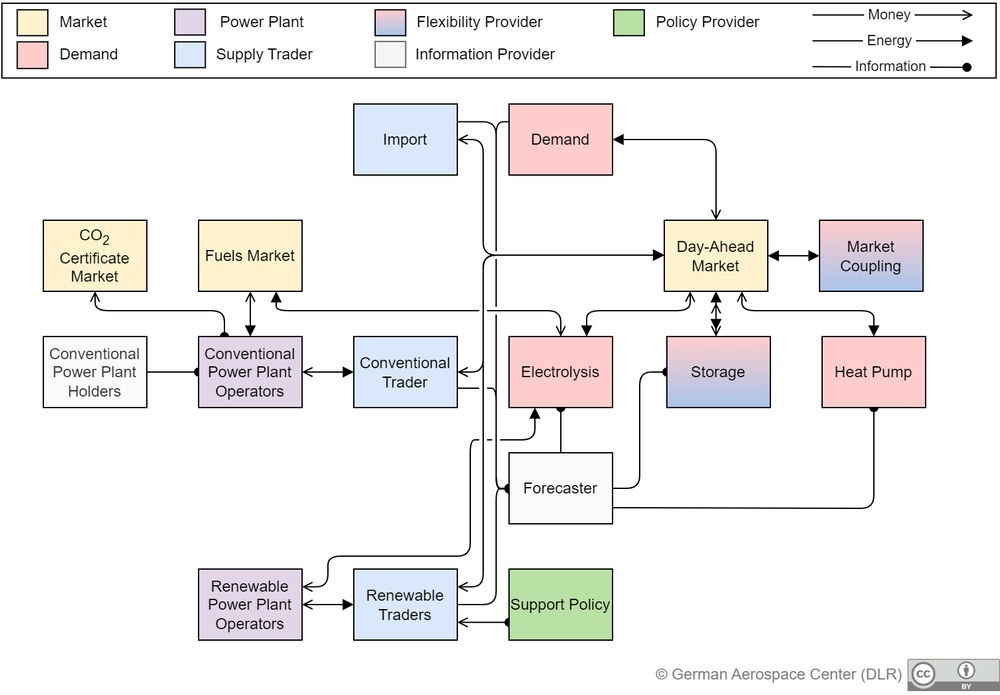Energy Systems Analysis
The Energy Systems Analysis department generates system-analytical knowledge, which we provide across sectors up to the global level and based in part on methods and modelling tools developed in-house.

The agent-based simulation model AMIRIS has been developed by the Energy Systems Analysis department and offers an innovative approach for the analysis and evaluation of energy policy instruments and mechanisms for the integration of renewable energies into the electricity markets. Past experiences have shown that energy policy instruments have repeatedly not achieved the intended effects as originally planned, and were often accompanied by unintended side-effects. A central reason for this is seen in the fact that the underlying assumptions of conventional equilibrium models and the classical economic theory of purely rational actors acting with complete market information does not reflect the reality adequately.
Within the necessary organisational transformation of the energy system and its accompanying financial adjustments a huge variety of heterogeneous actors is involved. They are connected through complex interdependencies and can react very differently to changes in the environment. These inter-relationships and interactions at the micro level of the actors as well as its effects on the macro level of the energy system must be taken into account when policy instruments and frameworks are being designed.
For this challenge, agent-based modelling (ABM) - originating from artificial intelligence research - is seen as an appropriate approach. The learning actor with his own perceptions and patterns of activity is integrated into a social and changing environment and in the centre of modelling. The bottom-up modelling of behavioural options and patterns of agents (actors in reality) and their interaction with each other is based on an intensive actor’s analysis in order to allow modelling as close as possible to real behaviour.
Previous work in the model development has focused on direct marketing of renewable electricity in Germany. Central figures in the model are differently prototyped intermediaries, which contract renewable plant operators and accommodate the generated electricity generated to the electricity sub-markets (wholesale and balancing energy) or sell it directly to consumers.
In the future, the model will be extended to address issues of refinancing of renewables when being fully integrated into the markets and of other flexibility options (demand management, storage, electricity- heat-linkages). Further development will also allow analysis of conventional back-up capacities under the conditions of a new market design. In addition, the model should be highly spatially resolved in order to better reflect the different meteorological conditions and portfolio effects of the renewable feed-in.
More information
